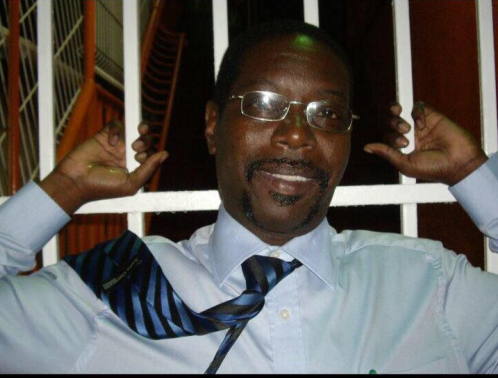 Oranjestad:--- The Board of Financial Supervision Aruba (CAft) applauds Aruba’s intention to become the first country in the Caribbean part of the Kingdom to implement a clear policy for the management of government participations and dividends. This policy, along with a new code of conduct for corporate governance, may help Aruba to identify financial risks at state-owned companies in an earlier stage, and to achieve more results and social return from these companies. Considering past experiences, in this context, the CAft emphasizes the necessity to actually implement such policy and to apply it in practice.
Oranjestad:--- The Board of Financial Supervision Aruba (CAft) applauds Aruba’s intention to become the first country in the Caribbean part of the Kingdom to implement a clear policy for the management of government participations and dividends. This policy, along with a new code of conduct for corporate governance, may help Aruba to identify financial risks at state-owned companies in an earlier stage, and to achieve more results and social return from these companies. Considering past experiences, in this context, the CAft emphasizes the necessity to actually implement such policy and to apply it in practice.
Participations policy
Companies in which the government holds an interest, are of importance to the Country, but they also entail financial risks, of which the CAft has experienced several examples. At Aruba Wastewater Sustainable Solutions (AWSS), the intention was to take out unnecessary expensive loans; at Utilities, dividends were paid without shareholder approval; and financing and procurement of several large projects at Refineria di Aruba (RdA) took place on unfavorable terms. In the case of the loans at AWSS, timely intervention took place, partly at the CAft's advice. Therefore, it is important that the roles are adequately distributed: the Minister of Finance acts as the owner on behalf of the government, the other Ministers issue orders, and the companies execute them, thereby making it clear who is responsible for what.
Aruba is working on the implementation of a policy for these participations, establishing rules for the payment of dividends. In addition, the country is working on a law on good governance by means of the National Ordinance on Corporate Governance. These frameworks are a solid basis for better management of state-owned companies, provided they are implemented and consistently complied with.
Aside from requesting attention for the government participations, the CAft again draws specific attention to the situation at the Dr. Horacio Oduber Hospital Aruba (HoH), of which, after all, the costs are borne by the government, whilst the government cannot intervene as owner nor shareholder. This entails considerable financial risks, and the CAft urges the government to reach a solution with the hospital and the owner.
Legislative Proposal Kingdom Act on Sustainable Government Finance (RHOFA)
With RHOFA, Aruba faces an important choice. The RHOFA and its corresponding National Ordinance offer a framework for financial supervision and generate interest benefits for Aruba. The RHOFA allows for cheaper refinancing of foreign loans with the Netherlands, and Aruba can register for new loans with the Netherlands to finance investments. This may lead to an interest benefit for Aruba of up to AWG 60 million per year, which is more than AWG 500 per Aruban citizen.
Financial management
The CAft applauds the progress Aruba is making when it comes to clearing the backlog with regard to the annual accounts. The Court of Audits of Aruba has now received all annual accounts up to and including 2024. The reports on the implementation of policy are also up-to-date. Now that the backlog is cleared, the focus must be on enhancement of the reporting quality. Aruba faces considerable challenges in this regard.
On February 26 and 27, the CAft visited Aruba. During this visit, the CAft spoke to the Governor, the Ministers of Finance, Economic Affairs, Justice, Integration and Public Transportation, with the Council of Ministers, the Parliament of Aruba, the Court of Audits of Aruba and companies such as Utilities and Refineria di Aruba.








 PHILIPSBURG:--- Reigning Calypso King Edsel “Yaadfowl” Eusebius, who stunned audiences last year by capturing the crown on his very first attempt in the Nagico Senior Calypso Competition, will now face a wave of challengers as Carnival 2026 heats up.
PHILIPSBURG:--- Reigning Calypso King Edsel “Yaadfowl” Eusebius, who stunned audiences last year by capturing the crown on his very first attempt in the Nagico Senior Calypso Competition, will now face a wave of challengers as Carnival 2026 heats up. PHILIPSBURG — The investigation into disturbing allegations of abuse involving two prominent local physicians has taken a new turn, with the younger suspect facing extended detention while his father has been released under strict conditions.
PHILIPSBURG — The investigation into disturbing allegations of abuse involving two prominent local physicians has taken a new turn, with the younger suspect facing extended detention while his father has been released under strict conditions. PHILIPSBURG:--- The Prosecutor’s Office has formally appealed the full acquittal of Fernando Clark, setting the stage for a retrial before the Joint Court of Justice on March 5.
PHILIPSBURG:--- The Prosecutor’s Office has formally appealed the full acquittal of Fernando Clark, setting the stage for a retrial before the Joint Court of Justice on March 5.




